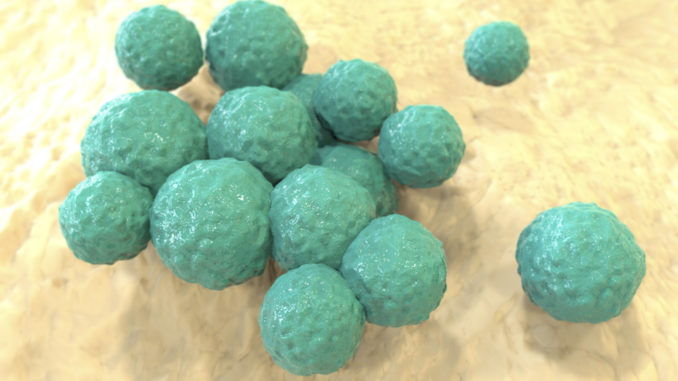
–Azitra, Inc., a clinical-stage medical dermatology biotech company addressing serious skin conditions by harnessing the microbiome, announced that the United States Patent and Trademark Office (USPTO) has issued U.S. Patent No. 10,702,558 to the Company today. The patent includes broad composition of matter claims that cover the Company’s engineered bacterial strain discovery platform, are central to its programs for treating skin diseases, and provide a significant barrier to entry for competitors.
“We are thrilled that the USPTO has granted such broad claims for Azitra’s first issued patent. This foundational patent was filed at the founding of Azitra, and the broad protection it offers for our skin microbiome platform will be critical as the company continues to advance into the clinic. We are moving forward on a number of key programs and plan to expand our pipeline with additional engineered live biotherapeutic product candidates,”
said Travis Whitfill, Co-founder and Executive Director of Advanced Technology of Azitra.
One key allowed claim covered under the patent includes the pharmaceutical composition comprising selected bacterial strains and at least one engineered bacterial strain that produces a therapeutically active protein for treating abnormal human skin conditions.
“The fundamental nature of this patent validates our original and innovative core technology; it strengthens our position as we move a number of our programs into the clinic, and it sets the stage for future innovation,”
said Richard Andrews, President and Chief Executive Officer of Azitra.
“Our proprietary discovery platform combines the properties of the skin microbiome with therapeutic protein expression to address serious skin conditions and diseases.”
Azitra also announced the publication of data demonstrating that growth of skin commensal bacteria Staphylococcus epidermidis can be modified without the need of antibiotics or genetic elements that are related to antibiotic resistance. Azitra’s report, titled “Controlling the Growth of the Skin Commensal Staphylococcus epidermidis Using D-Alanine Auxotrophy,” was published in mSphere. S. epidermidis is known to enhance skin immunity and protect against skin pathogens; it also has the potential to be used as a delivery system for therapeutic proteins that can be used to treat the underlying cause of skin diseases. Azitra’s auxotrophic strain strategy allows the Company to both select S. epidermidis strains and control its growth on the skin.
In the paper, Azitra scientists and colleagues reported the design of an engineered auxotrophic strain of S. epidermidis thatcontains deletions of three biosynthetic genes and, as a result, requires exogenously supplied D-alanine for growth. In cultured human skin models in vitro, D-alanine treatment robustly increased the strain’s colonization potential and promoted human beta-defensin 2 expression, an important host epithelial antimicrobial peptide.
“With the advancement of synthetic biology techniques, we can now precisely manipulate the growth, and therefore the therapeutic levels, of this S. epidermidis auxotroph strain without the risk of developing antibiotic resistance. The data from our study support the strain’s potential use as a safe and effective live biotherapeutic product for the treatment of skin diseases,”
said Mr. Whitfill, who is senior author on the paper.
The strain described in the paper is the company’s lead product candidate, ATR-04, which is a proprietary, auxotrophic strain of the commensal skin bacterium S. epidermidis that was well tolerated in initial clinical studies. Azitra is developing this live biotherapeutic product candidate as an adjunctive treatment for cancer therapy-associated rash, a debilitating and potentially treatment limiting side effect of many cancer therapies, especially EGFR inhibitors. The company recently announced the receipt of Rare Pediatric Disease Designation for a second program, ATR-12 for Netherton syndrome.

